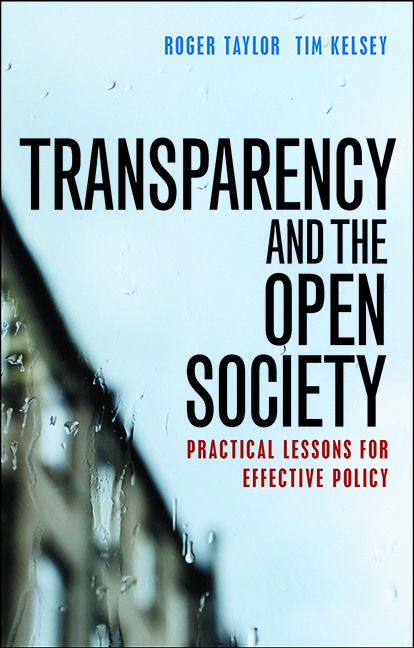7 - Transparency in an age of big data
Published online by Cambridge University Press: 05 April 2022
Summary
We are now in the middle of a second wave of transparency policy. The first wave saw most countries around the world adopt freedom of information (FOI) legislation between 1960 and 2000. This has now become an expected feature and marker of democratic regimes, with over 75 countries now having laws covering general public access to government documents and information excluding personal information (normally referred as FOI) and individual access to personal records whether held by government or non-government organisations (normally referred to as data protection or privacy protection legislation). Most countries deal with these different data access regimes with separate legislation, but in some jurisdictions an overarching legal framework is in place. At the same time, consumer transparency became a growing concern, pushed forward by consumer advocacy groups and governments’ increased willingness to enforce transparency on companies.
In the past couple of decades the focus has shifted to widening access to public data sets and the idea of open government. The Open Government Partnership (OGP), a collaboration between 69 countries, is very much in this mould. It describes itself as: ‘a multilateral initiative that aims … to promote transparency, empower citizens, fight corruption, and harness new technologies to strengthen governance’.
Where access to information (ATI) was about stopping abuse of power, open government is as much about finding better ways to govern. In that sense, open government is at times more closely in tune with the scientific tradition of transparency than the political – with the idea that by sharing data and knowledge we can collectively uncover new knowledge and better ways of doing things more quickly.
The spread of ATI legislation and the enthusiasm of governments for transparency – along with corporate efforts to adopt transparency as a business virtue – could be seen as evidence that the world is becoming more transparent. This idea chimes with another popular notion – the idea that privacy is dead. Put someone's name into Google and you will usually learn something about them.
The continuous scrutiny of public institutions through 24-hour news, the growth of continuous commentary on politics and institutions, the rise of blogging and in particular the anonymous ‘insider’ blog, the growth in availability of official data, the spread of ATI and the increasing protection afforded to whistleblowers – these trends might lead one to conclude that the world is becoming a more transparent place.
- Type
- Chapter
- Information
- Transparency and the Open SocietyPractical Lessons for Effective Policy, pp. 113 - 128Publisher: Bristol University PressPrint publication year: 2016



